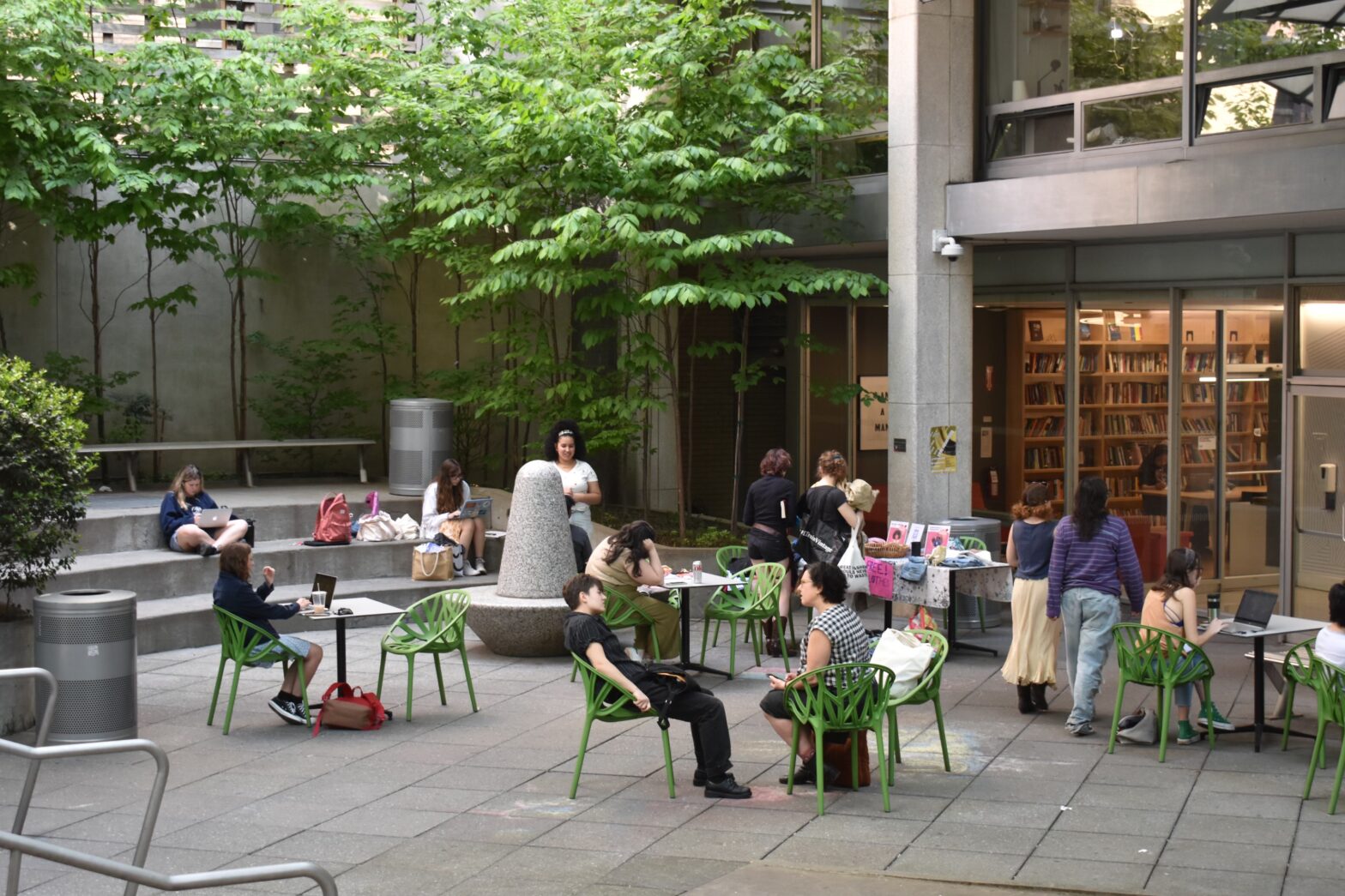Riley Avina, a third-year at Eugene Lang College of Liberal Arts, admitted her first-year grades at The New School were not optimal. But in future semesters, Avina’s grades got better, seemingly without much effort.
“The last three semesters, I’ve gotten mostly A’s, and I know I didn’t put in the effort I probably wish I did to deserve the A,’’ Avina said. “Obviously I’m not going to argue with that.”
Data from The New School’s Institutional Research newsletter “IR Digest” shows that this is a reality for more than half of the university’s students, as TNSs “A” grade average has increased by 20% since the fall 2020 semester.
The sudden spike in grades can be attributed to “grade inflation,” otherwise known as the process of awarding students a higher grade than previously given for the same level of achievement. Grade inflation is not specific to only The New School, and college campus’s nationwide, due to the COVID-19 Pandemic. A study done at Texas A&M showed an uptick in “A” grades during the height of the pandemic.
Data from The New School’s IR Digest. Chart by Mackenzie Peluso.
The Washington Post Editorial Board claims that “the people who end up being cheated are the students themselves” since inflating grades gives students the impression they have “mastered a subject, only to learn the hard way that they haven’t been properly prepared.”
However, The Chronicle of Higher Education argues that grade inflation increases college student graduation rates. Studies show that college graduates are 24% more likely to be employed than those without a college degree. Grade inflation can create less anxiety around receiving a poor grade. The Chronicle of Higher Education argues that this creates confidence that students “are capable of college-level work,” promotes students to continue in their field of study, and makes college graduates less likely to face unemployment.
Grade inflation is not only affecting New School students: 80% of grades given to the undergraduate class at Yale University were also A’s, the New York Times reported this week. The report cites that the uptick in grades at the Ivy League college began during the COVID-19 pandemic but has since “stuck”.
“Once the pandemic happened, there was a lot of focus on keeping the students engaged,” said Blake Eskin, chair of the Journalism + Design department at Lang. The pandemic heavily influenced the switch in grading methods. During this time, faculty members had to condense concepts that were usually taught in a classroom into a remote-friendly environment while also keeping students interested. To make the process smoother for students, The New School switched to an A/A- grading system, which is similar to the Pass/Fail system used at other universities in the spring of 2020.
Data from The New School’s IR Digest. Chart by Mackenzie Peluso.
But just as students settled into a post-pandemic reality, part-time faculty at TNS went on strike during the fall 2022 semester and New School students were left in the dark about updated grading practices. Many students questioned how they would receive grades while their professors were participating in the strike.
Leaked emails from The New School’s Talent Engagement Coordinator during the semester suggested the university was looking into “temporary progress reviewers” to assign grades in place of the striking professors. But the plan was never approved, according to a message from the former Executive Vice President for Business Operations at The New School, Tokumbo Shobowale, and the strike ended before grades were due.
“A lot of professors that semester gave generous grades [because they] felt students had been penalized and should be held harmless for what happened to them,” Eskin said.
New School professors and students alike told The New School Free Press that they do not see grades as a reliable indicator of their intellectual worth.
“I feel like I earn [good grades]. I put a lot of effort into all of my projects,” said Quinn Thomas, a third-year student at Parsons School of Design. “But I do think that a lot of professors that I’ve come across have [said] ‘Don’t worry about grades. It doesn’t really matter.’”
Marcos Chavez, a part-time professor at Parsons, referred to an Aesop’s Fable about “The Ant and The Grasshopper” when talking about his grading process with students. The fable’s moral is that those who take advantage of the time they have to prepare now will be more prepared for the future. Chavez emphasized that he gives A’s based on improvement.
“[The ants’] designs aren’t as good as the grasshoppers’, but the ants deserve a better grade … they worked harder, they improved more. It’s not about who did the better looking piece,” Chavez said. “In design school in New York City at Parsons … [grades] are not even reflective of what you have to do as professionals. You still are judged, [but] it may not come across in the form of a letter on your screen.”
Despite grading processes varying by professors, the IR Digest report suggested that The New School community should continue investigating grade inflation-related issues. “The New School should continue to examine these issues, specifically across academic areas, as doing so will best inform more targeted support to students and educators,” the report stated.








Leave a Reply